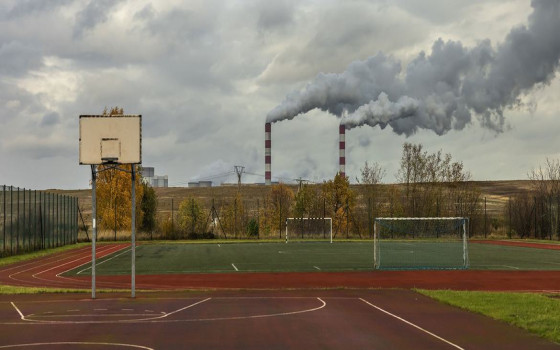
Air pollution is behind more than 4.5 million premature deaths annually and has huge environmental and economic costs. UN report: Climate change and air quality are intertwined and must be addressed together to protect the health of the planet.

- Europe and Arabs
- Sunday , 7 September 2025 9:54 AM GMT
New York: Europe and the Arabs
The World Meteorological Organization (WMO) has emphasized in a new report the need for improved atmospheric monitoring and more integrated policies to protect human health and the environment and reduce agricultural and economic losses. According to the UN's daily news bulletin, the new report, titled "WMO Bulletin on Air Quality and Climate," examines the complex interaction between air quality and climate, highlighting the role of fine particles known as aerosols in wildfires, winter fog, shipping emissions, and urban pollution. The bulletin is being released to mark the International Day of Clean Air for Blue Skies, which falls on 7 September.
The bulletin explains that fine particles generated by activities such as transport, industry, and agriculture, as well as by wildfires and wind-blown desert dust, continue to pose a serious health risk. The report monitored changes in particulate matter (PM) with a diameter of 2.5 microns or less in 2024, showing that levels declined in eastern China thanks to ongoing mitigation measures, while there were pollution hotspots in northern India.
It added that forest fire activity led to above-average PM levels in Canada, Siberia, and Central Africa. However, the greatest change occurred in the Amazon Basin, as part of record forest fires in the western Amazon and drought-induced fires in northern South America.
The bulletin examined the role of aerosol concentrations, which can warm or cool the atmosphere depending on their composition.
It emphasized that unraveling the complex interactions between aerosols, reactive gases, and long-lived greenhouse gases is a challenging task, and a sound understanding of these interactions will help develop better mitigation measures for both climate and air quality.
Regarding winter fog, the bulletin stated that persistent fog is no longer a simple seasonal weather phenomenon, but rather an indicator of worsening human impact on the environment, and addressing this requires comprehensive strategies. "Climate change and air quality cannot be addressed in isolation. They are interconnected and must be addressed together to protect the health of our planet, our communities, and our economies," said WHO Deputy Secretary-General Ko Barrett.
The World Health Organization estimates that air pollution causes more than 4.5 million premature deaths worldwide each year, in addition to significant environmental and economic costs.












No Comments Found